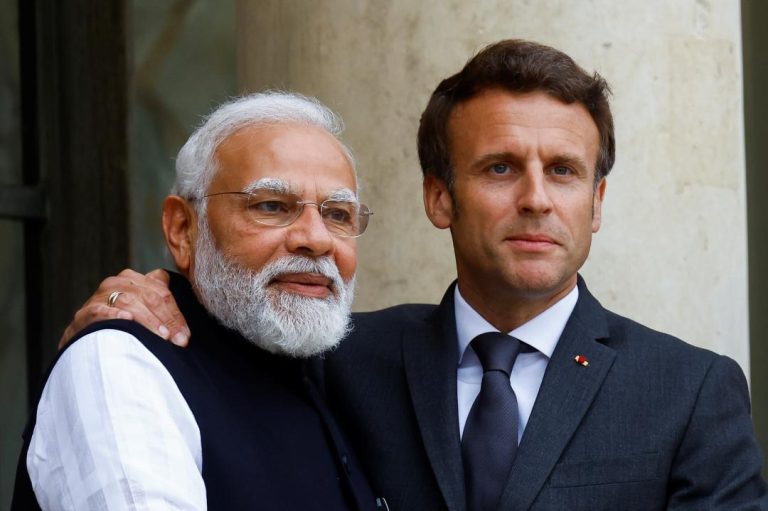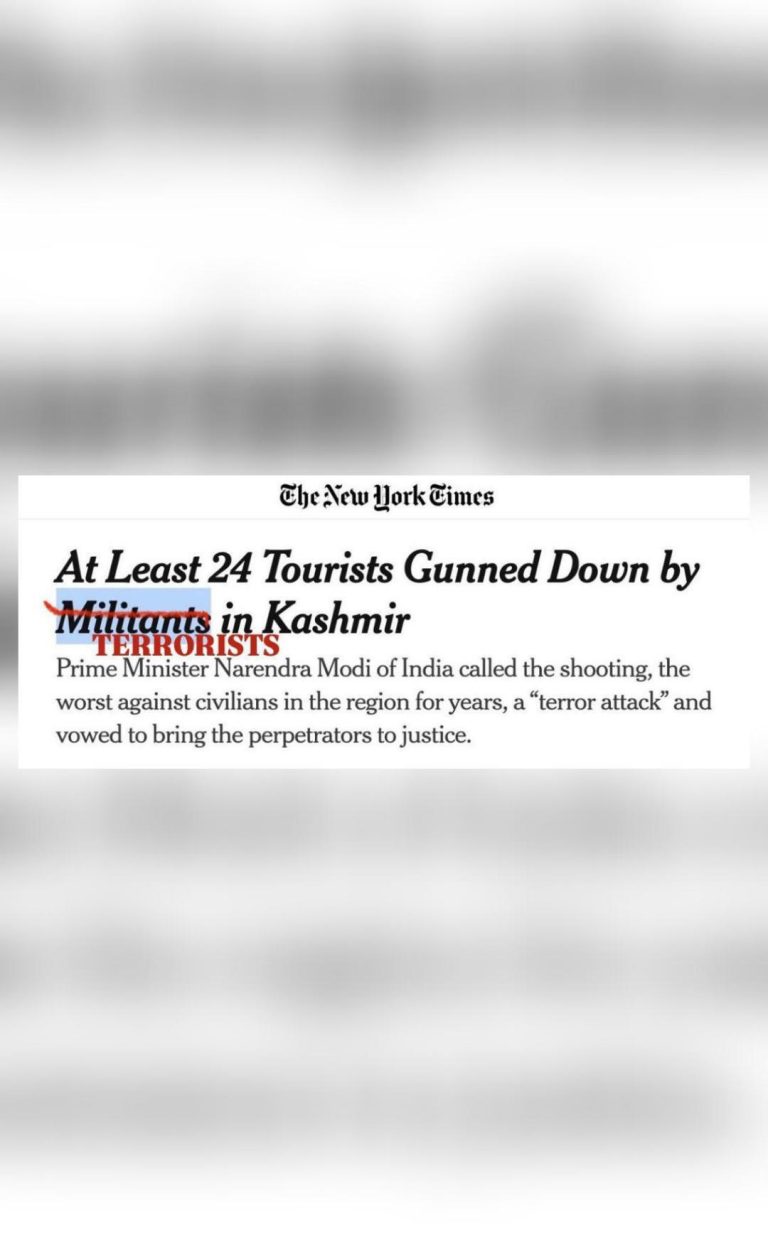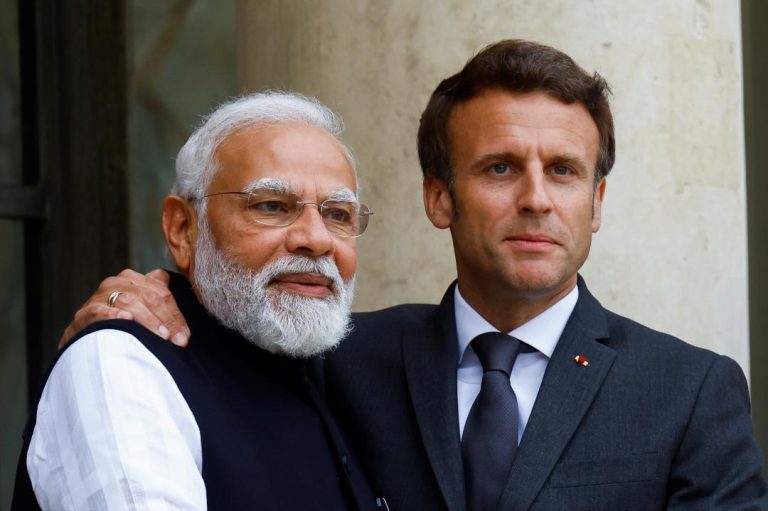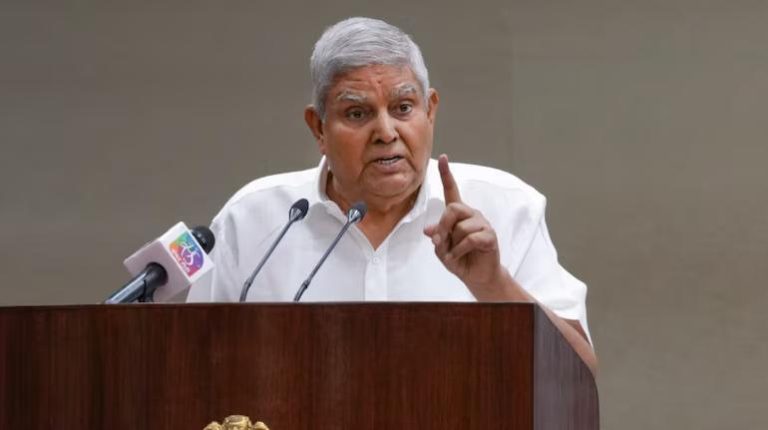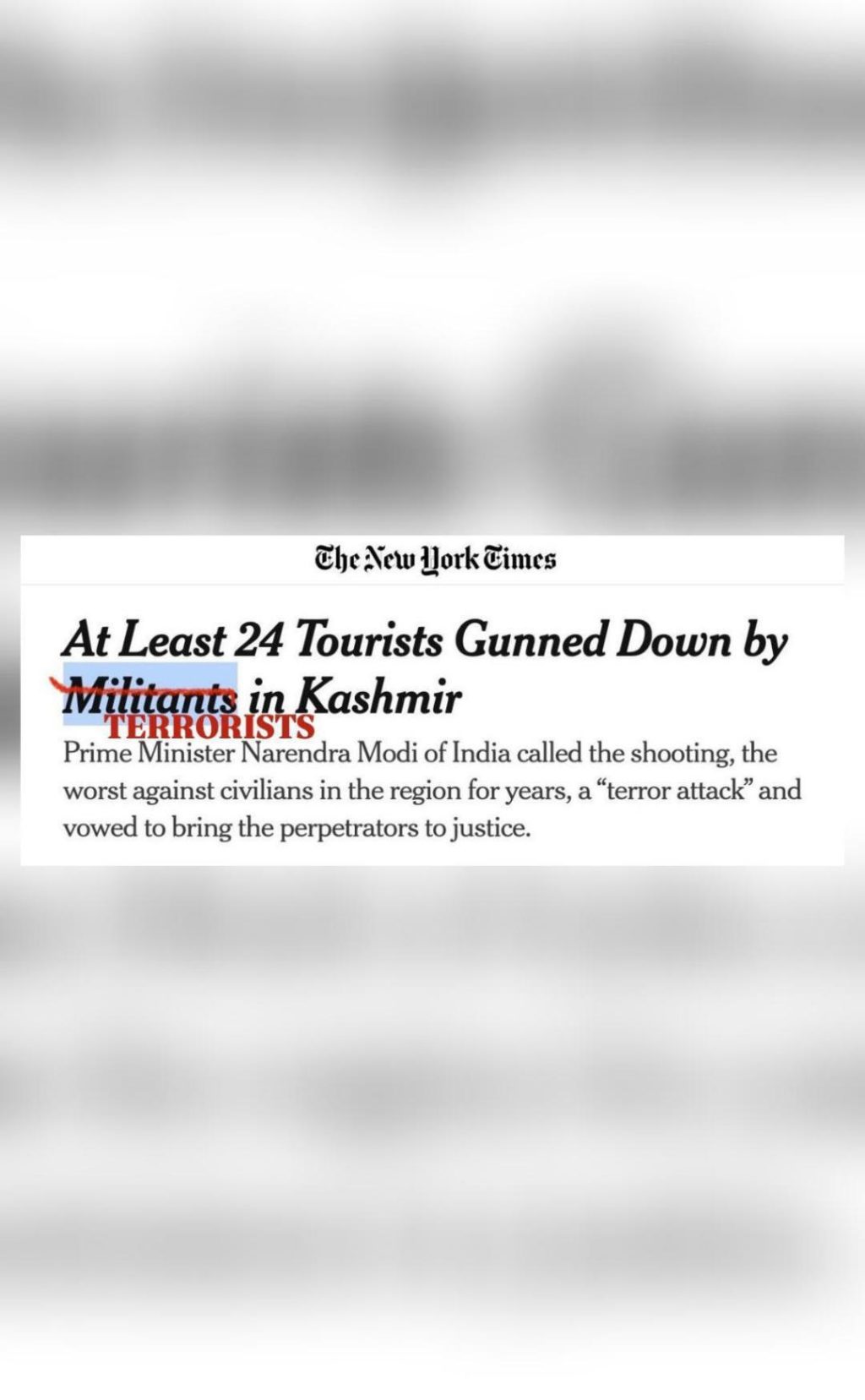
Hey NYT, fixed it for you: US committee after news portal calls J&K terrorists ‘militants’
The New York Times has been in the crosshairs of controversy once again, this time for its seemingly soft approach to labeling terrorist attacks. The latest incident occurred when the US House Committee on Foreign Affairs shared a picture of a New York Times article, which referred to the terrorists behind the attack in Jammu and Kashmir’s Pahalgam as “militants”. The committee’s tweet was a scathing rebuke of the NYT’s terminology, stating that the attack was in fact a “TERRORIST ATTACK plain and simple”.
The tweet in question was shared by the House Foreign Affairs Committee’s official Twitter handle, which is controlled by the Republican Party. The post read: “Hey NYT, we fixed it for you…This was a TERRORIST ATTACK plain and simple…Whether it’s India or Israel, when it comes to TERRORISM, NYT is removed from reality.” The tweet was accompanied by a picture of the NYT article, which had indeed referred to the attackers as “militants”.
The incident has sparked a heated debate on social media, with many taking to Twitter to express their outrage and frustration over the NYT’s perceived bias. The tweet has also garnered a significant amount of attention, with over 1,000 retweets and over 2,000 likes as of writing.
For the uninitiated, the Pahalgam attack in question refers to a shooting incident that took place on October 11, 2022, in which three Indian tourists were killed and several others injured. The attack was attributed to terrorists affiliated with the Lashkar-e-Taiba (LeT), a Pakistan-based militant organization.
The US House Committee on Foreign Affairs’ tweet was a clear rebuke of the NYT’s decision to use the term “militants” to describe the attackers. Many have argued that the term “militant” is often used to describe non-state actors who are engaged in political or ideological conflicts, and that it can be seen as a euphemism for terrorism. In this case, the fact that the attackers were affiliated with a designated terrorist organization like LeT only adds to the gravity of the situation.
The committee’s tweet also drew attention to the NYT’s perceived bias when it comes to reporting on terrorism in India and Israel. Many have argued that the NYT tends to downplay or ignore terrorist attacks in these countries, while devoting extensive coverage to similar incidents in other parts of the world.
One of the main arguments against the NYT’s use of the term “militant” is that it can be seen as a way to avoid using the word “terrorist”. This is particularly significant in the context of the Pahalgam attack, given the clear affiliation of the attackers with a designated terrorist organization. By using the term “militant”, the NYT may be seen as downplaying the severity of the attack and avoiding the use of a term that is widely recognized as a synonym for terrorism.
The NYT has faced criticism for its reporting on terrorism in the past, with many arguing that its coverage tends to be skewed towards a particular narrative or ideology. In 2020, the paper was accused of downplaying the severity of terrorist attacks in India, with some critics arguing that its reporting was overly sympathetic to the terrorist organization responsible for the attacks.
In response to the controversy, the NYT has yet to issue a formal statement or explanation for its decision to use the term “militant” in the article. However, the paper has been accused of using similar language in the past, and some have argued that its reporting on terrorism is often influenced by a particular ideological or political agenda.
The controversy highlights the ongoing debate about the role of the media in reporting on terrorism and political violence. While some argue that the media has a responsibility to provide accurate and unbiased reporting, others argue that the media’s reporting on terrorism can have a significant impact on public opinion and political discourse.
In conclusion, the US House Committee on Foreign Affairs’ tweet is a scathing rebuke of the NYT’s decision to use the term “militant” to describe the terrorists behind the Pahalgam attack. The controversy highlights the ongoing debate about the role of the media in reporting on terrorism and political violence, and the need for accurate and unbiased reporting. As the world continues to grapple with the complexities of terrorism and political violence, it is essential that the media plays a responsible and informed role in shaping public opinion and political discourse.
Source: https://x.com/HouseForeignGOP/status/1914843415793095043
